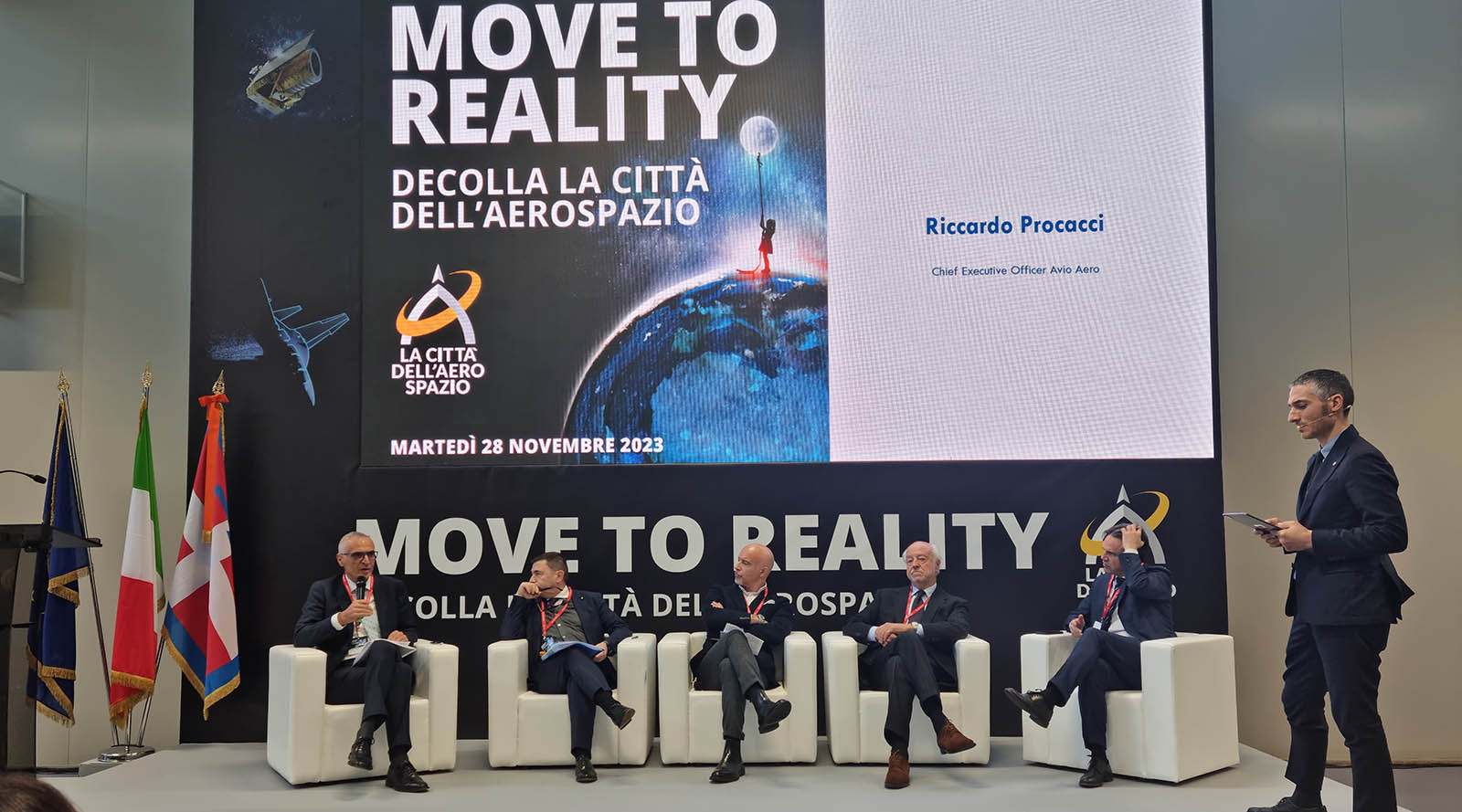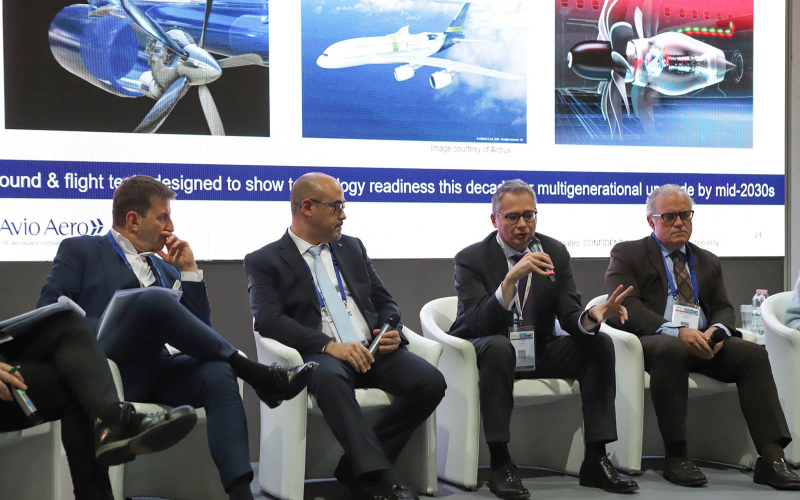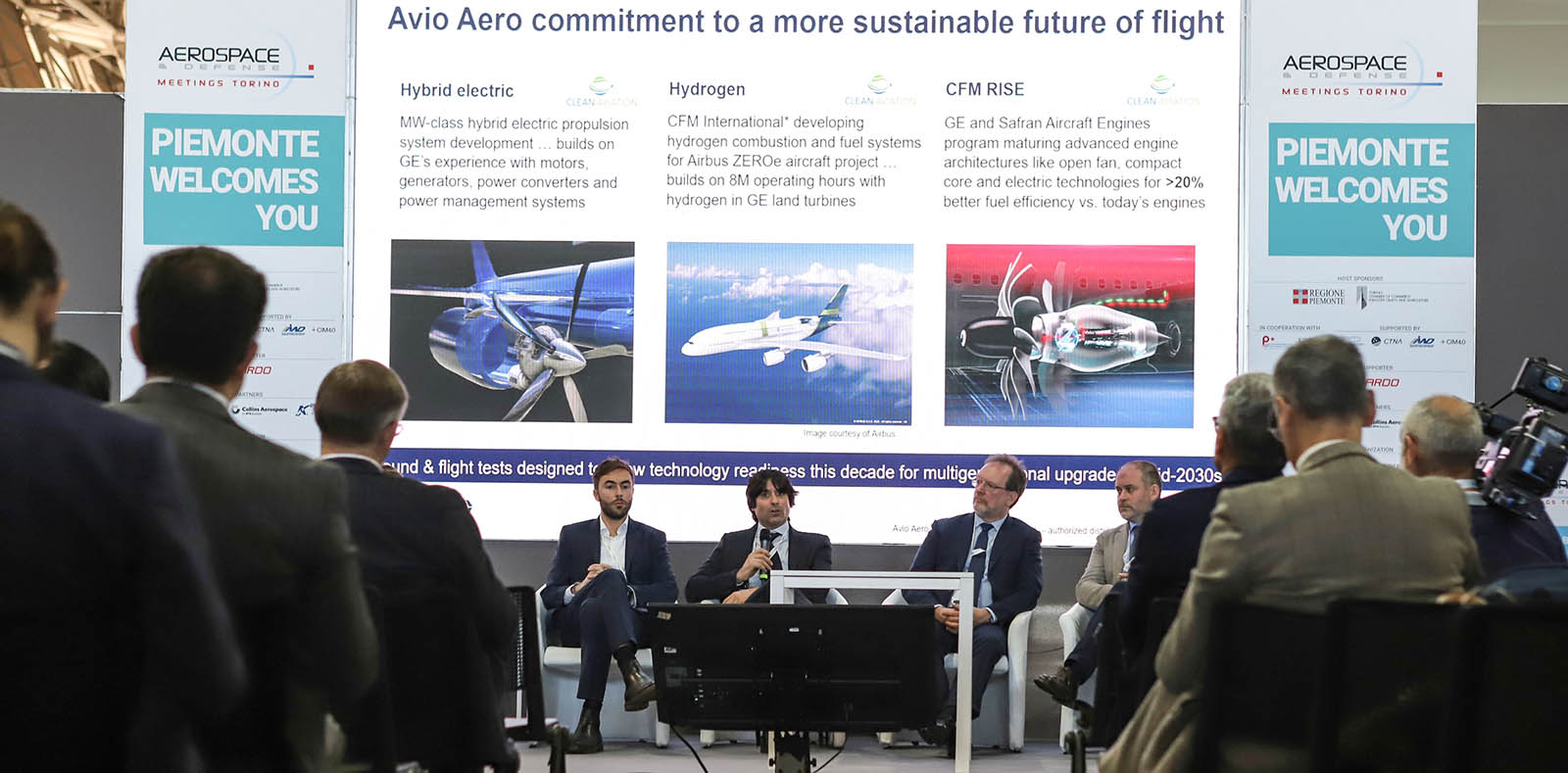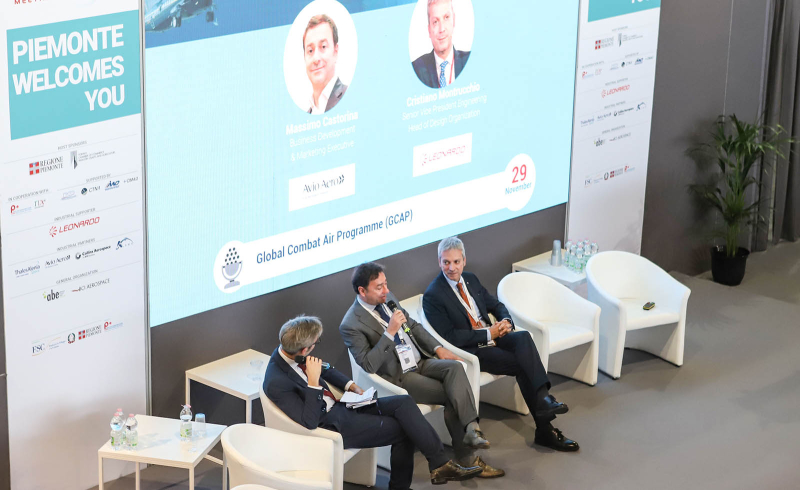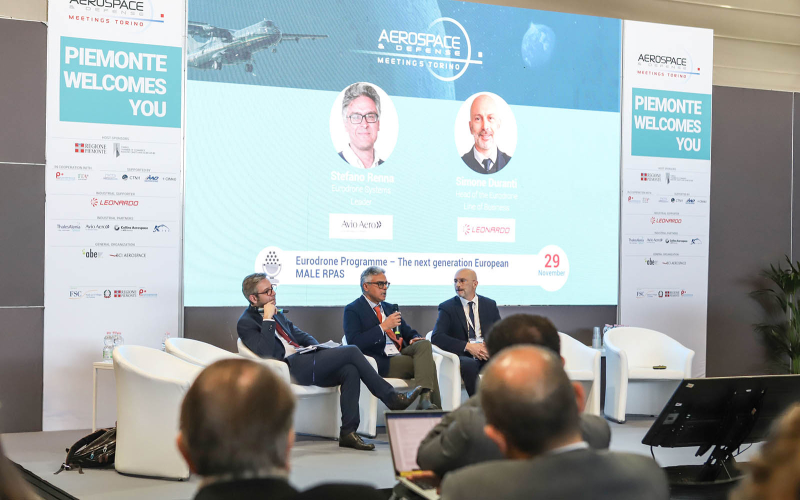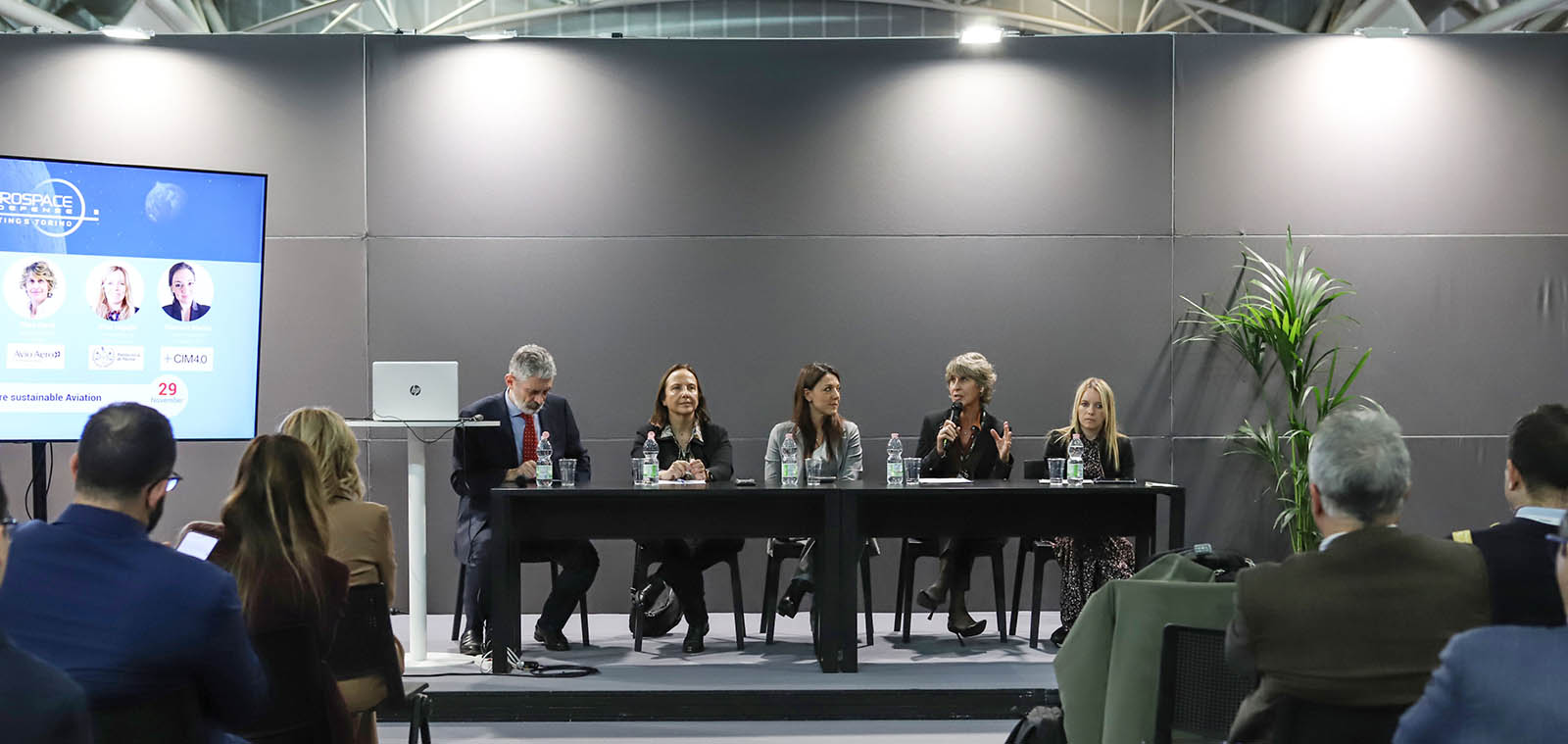Aviation
The Turin Aerospace Week
An important ceremony and the return of an industry event drew key industry players to the subalpine capital to look to the future and discuss the present themes.
Dec 2023
The inauguration ceremony of the Aerospace City on November 28th was the prelude to the Aerospace & Defense Meetings that closed on the 30th, putting Piedmont and Turin at the center of the industry for a whole week, along with all the major players in the Piedmont region, including Avio Aero, Collins Aerospace Italy, Leonardo and Thales Alenia Space Italia.
The Aerospace City will be built in Corso Marche in Turin and will involve major companies, research centers and universities in the regional capital. The desired goal is to create an eco-system open to the development of new technologies and to increase integration between large players, academia, SMEs and startups. This ambitious project was the result of the collaboration between local companies, the Polytechnic University of Turin, the University of Turin, the Piedmont Region, the City Council and the local Chamber of Commerce.
As stated by Avio Aero CEO Riccardo Procacci during his speech at the inauguration ceremony, “ours is a company that has always been dedicated to the research and development of innovative technologies to redefine the future of flight. Collaboration with other local organizations is part of our DNA and of our history spanning over 115 years: Aerospace City is a real example of how collaboration is the only possible path to success."
The industry event Aerospace & Defense Meetings is nowadays a regular biennial business convention that returned to the city for the ninth time, gathering together 1,400 attendees, 400 exhibitors and 280 buyers to discuss the most up-to-date themes: such as aviation sustainability, defense, Industry 5.0, artificial intelligence, cyber security and Advanced & Urban Air Mobility, as well as space exploration.
This major three-day business convention testifies to the crucial nature of the aerospace sector for Piedmont which, to date, employs more than 35,000 people in over 350 companies, including major players and suppliers.
"As president of the region, it is an honor for me to host this major event, which says a lot about how vibrant the sector is which, for Piedmont alone, is worth 8 billion in ever-growing sales," said Piedmont’s Regional President Alberto Cirio in his opening remarks. "This is the right region where to invest," added Fabrizio Ricca, councilor for internationalization of the Piedmont Region.
Aerospace also represents the future of Piedmont for Giancarlo Giorgetti, Minister of Economy and Finance, who – connected remotely – reiterated how "Turin must become the new European center for Aerospace."
The Turin week demonstrated how aerospace is a dynamic sector, full of initiatives and growth opportunities for the entire supply chain. The first panel hosted on the central stage of the event featured all the major companies in the industry – Leonardo, Thales Alenia Space, Altec, Collins Aerospace Italy, Boeing Italia, and Avio Aero – providing an occasion for discussion and debate on the topic of resilience and challenges for the supply chain.
"Today's challenges are not a surprise, but rather the result of what has happened over the past 3 years. We need to think about how sustainable our activities are," said Riccardo Procacci. The Covid 19 pandemic first and the war in Ukraine soon after were two momentous shocks for companies around the world, that were forced to rethink new supplier networks, increasing the number of those closest to production sites so as to "reduce costs and timelines."
Another key element to make the supply chain more resilient is the Lean culture: "we have been implementing it at Avio Aero for some time now to make our processes more robust, productive and streamlined," Procacci explained in his speech, recalling how "the engagement and inclusion policies towards both our current and potential employees also play a key part."
Today, in this industry, an innovative company aims to redefine the future of flight, explained Luca Bedon, the Executive Leader of Advanced Technologies. Three lines of research and development in Avio Aero cover "hybrid-electric propulsion for regional transport, the use of hydrogen as aviation fuel for long-range flights, and the implementation of innovative engine architectures, such as the open fan, for medium-range flights." These three research areas go hand in hand with the targets of the parent company GE Aerospace.
The first day closed with the signing of the agreement between Clean Aviation, represented by the Executive Director of the European Union Public-Private Partnership Axel Krein, and the Piedmont Region in the person of Andrea Tronzano, Councilor for Productive Activities. The cooperation agreement further stresses the importance to Piedmont of investing in the research and development of technologies to achieve decarbonization goals in aviation.
In addition to being among the founding members of Clean Aviation, Avio Aero is also involved in three major projects: "Amber when it comes to hybrid-electric technology, Hydea for the use of hydrogen, and Ophelia for the realization of an open fan engine architecture," said Enrico Casale, R&D Leader of Avio Aero, during the second day.
Another important chapter is that related to the most innovative programs for military aviation: the two staples for Avio Aero are the Global Combat Air Program (GCAP) and the Eurodrone. When it comes to the first one, as explained by Massimo Castorina, Business Development & Marketing Executive of Avio Aero, "the company is already working together with Rolls Royce and IHI Corporation on the research and development of enabling technologies for the realization of the power and propulsion system of the next-generation aircraft."
According to Castorina, the GCAP will have a "generational impact not only on a technological level but also for people, as it will create a new class of top-notch engineers, technicians and experts capable of tackling some of the most complex challenges in aviation history."
The other military aircraft for the near future is the Eurodrone of Airbus Defense & Space and, specifically, its engines by the military version Catalyst 1300-ED1, chosen for its advanced technologies and for being a "native European" engine. In fact, as explained by Stefano Renna, Sr. Engineer at Avio Aero, “this is a big challenge for us because, for the first time, we will be managing the entire propulsion system of a drone, including the propellers."
Another topic touched on during the many talks over the three days was the impact of artificial intelligence on the industry and how this new technology is influencing aviation in particular.
"We are engaged in the development of several projects to implement the use of AI in our company, in particular we are monitoring the dominance of Advanced Analytics and Computer Vision with the aim of optimizing the quality of our products, while improving times and costs” said Piera Carrà, Chief Information Officer at Avio Aero. “Artificial intelligence will have a significant impact on aviation, it will change the way we work, the people and the machine will have to be able to cooperate together in a more and more integrated way”.



